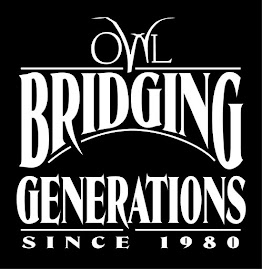As the health care reform debate has heated up in Washington, the issue of age rating insurance policies has been raised. The question is “will people be charged more for their health insurance because they are older?” OWL has come out strongly with a clear “NO”! To do that would be to discriminate against older people just because they are older. We have long stood against age and gender discrimination.
Here is how the debate is unfolding. Insurance companies now charge people more as they get older because they see that older people use (need) more health care services and therefore the company must pay out more. The companies charge a 55 to 65 year-old up to five times as much as a younger person just because of age. Logical? Maybe if you are an insurance company, but let’s look deeper.
The whole point of insurance is to spread the risk of needing to pay for medical care among people who will need it and people who won’t. That is what makes it insurance. If you lump all high users together you are not spreading the risk but putting it all on those who need the care.
Putting 55 to 65 year-olds in one risk pool increases the cost for that age group and essentially means that healthy 55 to 65 year olds support the ill 55 to 65 year-olds. All healthy people should help pay for those who need care because at anytime we might be the ones who need the care.
We, as a society, recognized that putting all people 65 and older into one pool would make insurance unaffordable for those over 65 so we created Medicare and a funding mechanism that spread the cost over the whole population. As we expand health insurance to all, we need to maintain that principle. Discriminating on gender or age should be a policy of the past.
Ellen A. Bruce
Immediate Past President, OWL Board of Directors
Wednesday, July 22, 2009
Subscribe to:
Post Comments (Atom)







4 comments:
I am so glad OWL is championing this issue. I think people generally are only vaguely aware of what age rating will mean. When I posted Martha Burk's comments (from Huffington Post) on a listserv, I received some howls of outrage in response. I don't think those people had really thought what age rating will continue to mean for them. (This is not dissimilar to the gender rating that was in effect in past years. It was rather ignored until there was a united voice of outrage---women, in particular, finally got it.)
I hope women "get" this, too, since women 50-65 are the most likely to be hurt by this.
Kathie Piccagli
If age rating is such a bad thing, why does auto insurance for the young cost SO much more than for older adults? And, young women have slightly more favorable rates than young men.
Do seniors want to share in that pool. Probably not.
I keep seeing people compare health insurance to auto insurance. Really? No one is required by law to have a car or drive. If you do, then you need insurance, and insurers adjust their risk. But Congress plans to require every American to have insurance, and unless we can choose to get sick or not, it's wrong to charge people more for something they have no control over (like age).
But there's a bigger fundamental point these people miss. Allowing any form of discrimination for something people can't do anything about (like age, gender, health history, etc.) is really just creating a loophole for private insurers to charge us all more. Don't make the mistake of thinking this only affects "older" people. Insurers will be allowed to use age - any age - as a reason to charge more. And you can bet they will. Getting rid of gender rating and pre-existing condition exemptions and health status rating means nothing if you can be charged more for age.
Think about it - a healthy 30 year old could be charged more than an overweight diabetic with asthma who is 29. Fair?
It's not about mandatory insurance, it's about becoming part of a risk pool and your risk defines your place in the pool.
The driver has little control over when the accident will happen just as she/he can't control when they will become sick.
Two things are known: young drivers have more accidents and older citizens use more medical care.
Suz.
Post a Comment